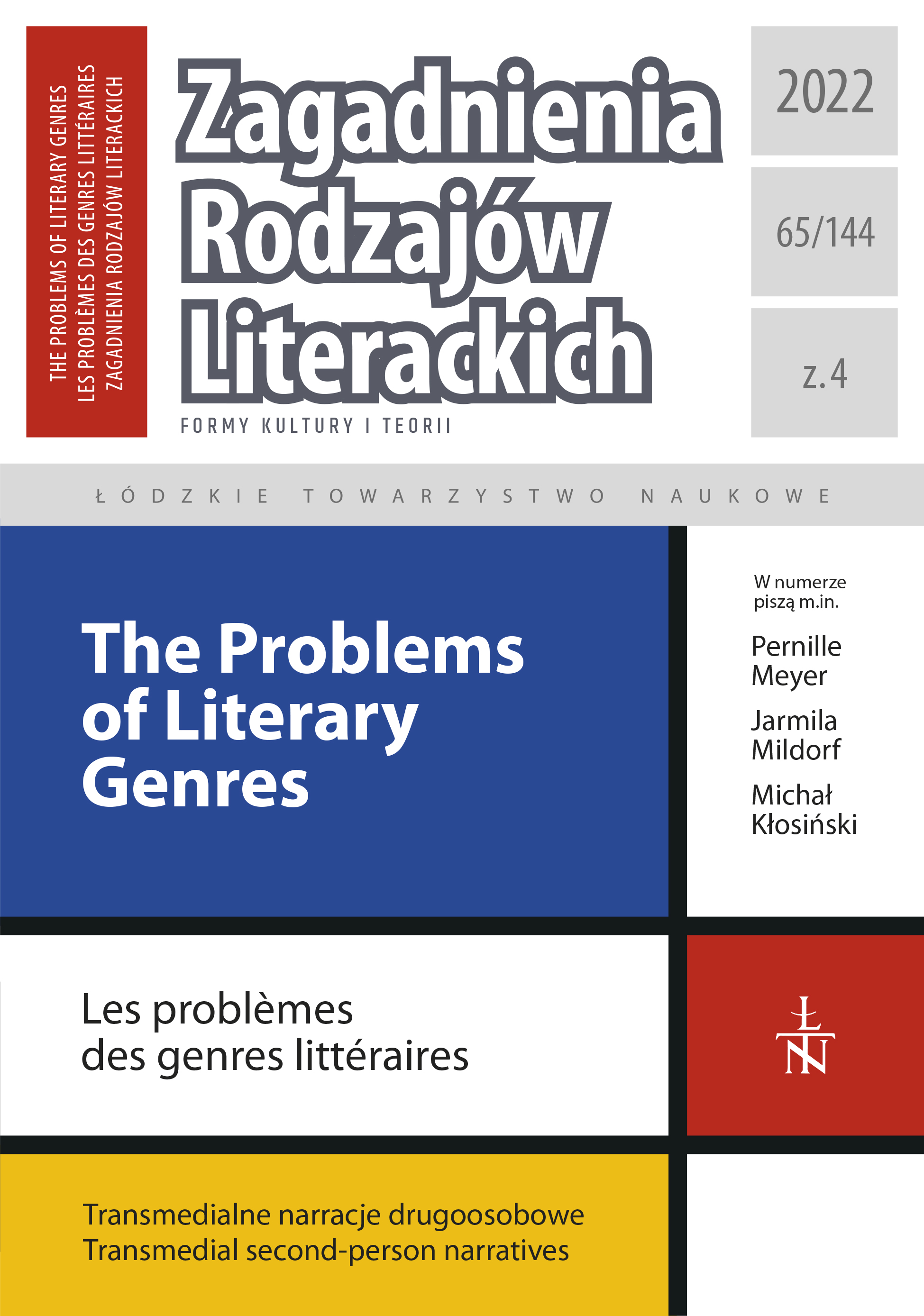Your Choice and Negative Affect in Alejandro Zambra’s “Multiple Choice” (2014) and Carmen Maria Machado’s "In the Dream House” (2019)
DOI:
https://doi.org/10.26485/ZRL/2022/65.4/3Słowa kluczowe:
second-person narration, hypertext fiction, shame, choice, Alejandro Zambra, Carmen Maria MachadoAbstrakt
This essay builds upon David Herman’s idea of double deixis to explore the ‘choose-your-own-adventure’ (CYOA) form as a popular subtype of you-narration that foregrounds reader involvement, co-creation, and agency. The central conceit from such instances of hypertext fiction to self-help writing seems to be that you — the reader/consumer — have a choice. However, in my reading of Alejandro Zambra’s Multiple Choice (2014) and Carmen Maria Machado’s In the Dream House (2019), the false equivalence between choice and non-choice becomes particularly palpable when considering the affect of the second-person mode. While the former exemplifies what Irene Kacandes has called ‘proto-’ or ‘paper hypertext’ (2001: 200), the latter is also a memoir. I look at the underexamined intersection of hypertext fiction and autobiographical writing in the history of second-person narratives to restore the significance of negative affect to critical discussion. The agency to choose in you-narratives not only involves the anticipation of guilt, fault and/or shame, but autodiegetic instances of you-narration like Machado’s memoir formalise Jean-Paul Sartre’s phenomenological description of shame and Denise Riley’s concept of malignant inner speech, or malediction.







